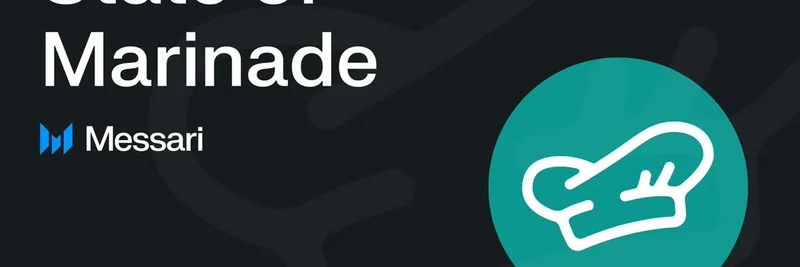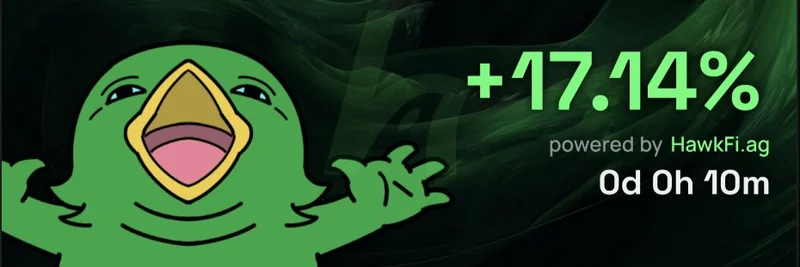In the fast-paced world of blockchain and DeFi, staying updated on protocol performance can make all the difference for investors and enthusiasts alike. Recently, a tweet from Boomer (@0xBoomz) caught our eye at Meme Insider, spotlighting Marinade Finance's role in Solana staking. Boomer highlighted how Marinade is catering to institutional needs with its Native and Select products while offering high-yield liquid staking through mSOL, all while channeling value back to its governance token, $MNDE, via MIP-13.
This insight stems from Marinade Finance's own post sharing the freshly released Messari Q2 2025 report on their protocol. For those unfamiliar, Marinade Finance is a stake automation platform on Solana that helps users optimize their SOL staking by delegating to a diverse set of high-performing validators. Let's break down the key highlights from the report and what it means for $MNDE holders and the broader meme token community interested in utility-driven assets.
Impressive Growth in Staking Products
One of the standout metrics is the 21% quarter-over-quarter (QoQ) increase in Total Value Locked (TVL) for Marinade Native, reaching 5.3 million SOL. Marinade Native is a non-custodial staking option where users retain full control of their keys, avoiding smart contract risks associated with liquid staking. This growth has positioned Native as Marinade's largest product by TVL, surpassing even their popular liquid staking token, mSOL.
Speaking of mSOL, it's a liquid staking token (LST) that lets you stake SOL and receive mSOL in return, which you can then use across DeFi protocols on Solana to earn additional yields. While mSOL's TVL grew modestly to 5.0 million SOL, its usage in DeFi jumped 6.2% QoQ to 1.2 million mSOL. A big driver here is platforms like Kamino, where over half of DeFi-deployed mSOL is used in leveraged yield strategies through multiply vaults. If you're new to this, think of it as borrowing against your staked assets to amplify returns—risky but rewarding in bull markets.
Then there's the new kid on the block: Marinade Select, launched in June 2025. This product targets institutions with a curated set of KYC-verified validators who adhere to ethical practices, like avoiding harmful MEV (Maximal Extractable Value) tactics such as front-running user transactions. In just a short time, Select amassed 844,700 SOL in TVL. Notably, it's been tapped as the staking provider for the proposed Canary Marinade Solana ETF by Canary Capital, signaling growing institutional interest in Solana staking.
Overall, Marinade staked over 11.1 million SOL across its products in Q2, showcasing resilience in a competitive landscape.
Revenue Trends and Challenges
Revenue for the quarter came in at about 12,200 SOL (roughly $1.8 million), down 56% from Q1's $4.1 million. This dip was largely due to reduced validator bidding in the Stake Auction Marketplace (SAM)—Marinade's system where validators compete for stake by offering a share of their rewards—and the blacklisting of some validators for malicious behavior. SAM is essentially a market-driven mechanism that ensures stake goes to the most efficient validators, but lower network activity on Solana impacted bids.
To keep things attractive for stakers, Marinade temporarily slashed fees, maintaining competitive yields. Looking ahead, a rebound in SAM activity could turn this around, especially with Solana's ecosystem heating up.
$MNDE: Governance and Value Accrual in Focus
Now, for the part that excites token holders: $MNDE, Marinade's governance token. The report emphasizes efforts to drive value back to $MNDE through proposals like MIP-11 and the newly introduced MIP-13.
MIP-11, approved by the DAO, allocates up to 40% of SAM fees for $MNDE buybacks, directly reducing circulating supply and potentially supporting price appreciation. MIP-13, proposed on July 17, 2025, builds on this by bumping buybacks to 50% of fees and introducing an Active Staking Rewards program. This program, funded with 25 million $MNDE, rewards users for participating in governance, encouraging more active involvement in the DAO.
These mechanisms align incentives between stakers, validators, and token holders. For instance, Protected Staking Rewards (PSR) requires validators to post SOL bonds, ensuring reliability, while SAM promotes market-based delegation. As Boomer noted in his tweet, these products are funneling value straight to $MNDE, making it a compelling hold for those betting on Solana's growth.
At the end of Q2, $MNDE's circulating supply was 411.1 million, down 4.5% QoQ after clawing back unused tokens from past programs. With a fixed max supply of 1 billion, these buyback initiatives could create deflationary pressure over time.
Institutional Adoption and Future Outlook
The report also touches on Marinade's push into institutional waters. Beyond Select's ETF integration, Marinade Native powers the live Bitwise Solana Staking ETP. Partnerships with custodians like BitGo, Zodia, and Copper, plus SOC 2 Type 2 compliance, position Marinade as a go-to for big players entering Solana staking.
For meme token enthusiasts, $MNDE represents a utility token with real governance power in a thriving ecosystem. While not a pure meme play, its community-driven aspects and potential for viral adoption through DeFi integrations make it worth watching. If Solana continues its upward trajectory, protocols like Marinade could see explosive growth, benefiting $MNDE holders.
If you're staking SOL or holding $MNDE, check out the full Messari report for deeper dives. And follow Marinade Finance on X for the latest updates. What's your take on MIP-13—game-changer or just another proposal? Drop your thoughts in the comments!




